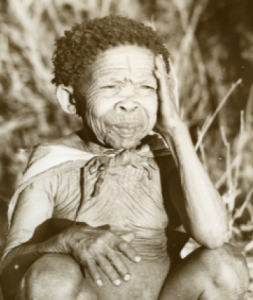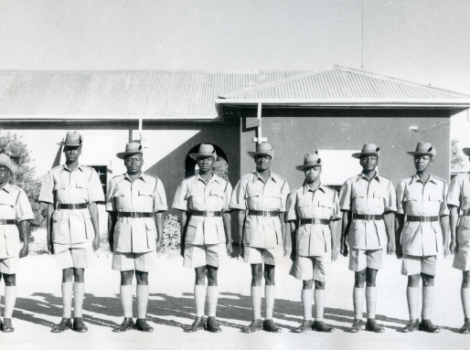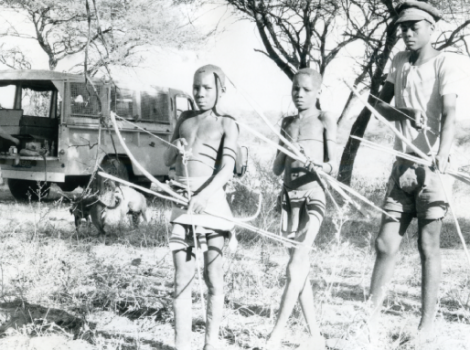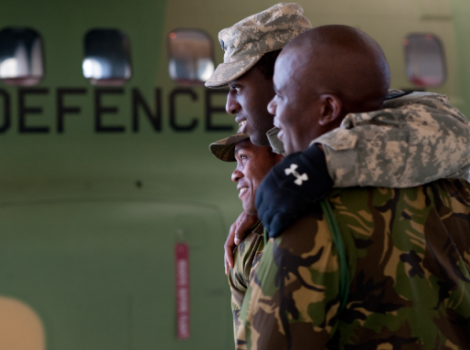
The photograph is of a San gentleman. My father won an award for this photograph; he chose to develop it in ‘sepia’, rather than the normal black and white, hence the colouring. But the real interest in this photograph is the story behind it.
This gentleman arrived in Maun carrying his wife on his back. Apparently, he had spent a few days walking to Maun carrying his wife. She was ill, and traditional San medicine could not cure her. He was aware that in Maun there was a hospital with western medicine, so he decided to bring his wife in for treatment. The local doctor treated her, although I do not recall the outcome of this treatment.
But in my mind, this story asks many of the questions currently being asked of modern society. Clearly, this gentleman was aware of developing technology, and saw an opportunity for some benefit to his family which he wished to realise. There was not only a remarkable commitment to his family, but also confidence in his knowledge of his surroundings – walking through the bush in those days was fraught with danger from wildlife, and there were no maps, let alone GPS. How many men today would embark on such an arduous journey for their family with such an uncertain outcome?
And the question that continues to challenge society; what is the benefit of development, do we want more development? This gentleman was prepared to forfeit his medical technology for western technology to benefit his family. Yet many bemoan the loss of the traditional lifestyle due to development.
Do we really want to forfeit our cars and walk for days in the bush carrying a sick family member or see them suffer ill-health due to lack of medicine? I asked a similar question in a debate on energy use – I asked whether the audience would be prepared to forego air-con during the Ngamiland summer, after explaining to them how one lived in such heat without any electricity; no-one accepted my challenge.
Written by Ian Brooks
Ian is Donald Brooks’ son. His father arrived in Maun in early 1962, leaving four years later in 1966. He was a police officer, trained in the UK, but working in the Colonial Service. His brief on being transferred to Maun was to sort out the ‘w’ element; there was a perception that there was insufficient regulation, particularly the hunting of the wild animals, and his task was to bring this under control.
Ian and his siblings were children while in Bechuanaland Protectorate/ Botswana; the younger 3 children were born in Bechuanaland Protectorate. The context is a combination of his own memory of life in Maun as a child, as well as various conversations with his parents over the years about the photographs and life in Botswana while they were there (1958 to 1968).



